The EEF Board is Having its First Election
The Erlang Ecosystem Foundation is set up as a community organisation, to be run for and by the community. As such, the role of board member is assigned by a democratic process, where voting members get to run and vote for their preferred candidates.
The process to be followed is described in legalese in our bylaws, but this page will explain more clearly how we plan for this to be working forwards.
Important Dates
The following dates were initially announced, but some were changed:
- February 28: Elections announced, people can submit their candidacy
- March 12: Last day to submit your candidacy
- March 13: Votes are open
- March 20: Votes are closed
Due to COVID-19, we slipped on opening up the voting the dates. The following are now correct:
- February 28: Elections announced, people can submit their candidacy
- March 12: Last day to submit your candidacy
- March 20: Votes are open
- March 27: Votes are closed
Do not forget to make sure you are a voting member to take part into the elections.
What Does a Board Member do?
Board members’ main involvement is essentially to sit in meetings (usually over video chat), and vote on the direction the foundation will take. They are responsible for things such as:
- Choosing how to allocate the budget of the Foundation (within the regulations specified by the bylaws and the IRS)
- Choosing which working groups are going to be accepted
- Choosing which working groups may be contracted if they are not meeting their objectives
- Handling administrative details (such as running these elections)
- Helping coordinate efforts across working groups
- Have the ability to change and adjust bylaws
- Bear the responsibility for the Foundation’s ongoing success
It is ultimately a fairly political job focused on “running the foundation”, distinct from the more direct involvement people in specific working groups usually have. Board members are not precluded from being part of working groups either.
Additionally, the roles of Director and Secretary can only be assigned to people on the board; they are the people who have all the actual administrative duties related to legal paperwork (writing actual signatures!), finance, insurance, maintaining meeting minutes, and ensuring that bylaws are respected by the rest of the board.
None of these roles are compensated; this is a volunteer effort because you care to steer the foundation in a direction you believe is important. You may also put the role of board member on your LinkedIn page or resume if that suits you.
Who are the Outgoing Board Members?
While the founding members assigned themselves to be part of the board as part of the initial bootstrapping effort, the board has been randomly divided into three cohorts, A (containing 3 members), B (4 members), and C (4 members). To ensure continuity, only one cohort is re-elected each year. This means that you will be elected for 3 years at a time.
Here are the cohorts as defined until the next election:
A, to be re-elected in 2022, 2025, and every three years after:- José Valim
- Richard Carlsson
- Kenneth Lundin
B, to be re-elected in 2021, 2024, and every three years after:- Peer Stritzinger
- Maxim Fedorov
- Benoit Chesneau
- Miriam Pena
C, to be re-elected in 2020, 2023, and every three years after:- Sebastian Strollo (current Secretary)
- Fred Hebert
- Alistair Woodman (current President)
- Francesco Cesarini
For this first election, the members of cohort C are to be re-elected, so the seats of Sebastian, Fred, Alistair, and Francesco are up for grabs.
How to Run?
If you want to run, you must be a voting member. Voting members are members who have done the following:
- A paying member paying their yearly membership or having paid for a lifetime membership
- A contributing member, who has spent about 5 hours monthly working in a working group, and who has contacted us at voting@erlef.org to claim their voting rights
- A managing member, who leads a working group and who has contacted us at voting@erlef.org to claim their voting rights
- A board member, who has a de-facto membership.
If you want to run, you should contact us at voting@erlef.org with the following information:
- Your name
- A short biography describing who you are
- A short text explaining why you think people should vote for you
- A photo (optional)
If eligible, you will then be added to the list of candidates on this page and on the ballots.
You have until end of day March 12 2020 Pacific time (PST) to submit your candidacy.
How to Vote?
You first have to have the right to vote, as a voting members. Voting members are members who have done the following:
- registered as a paying member paying their yearly membership or having paid for a lifetime membership
- acted as a contributing member, who has spent about 5 hours monthly working in a working group, and who has contacted us at voting@erlef.org to claim their voting rights
- A managing member, who leads a working group and who has contacted us at voting@erlef.org to claim their voting rights
The election will be open on March 20 2020, from midnight PST and for the next 7 days, until March 27 2020. On that day, a link will be sent to you to the address defined in your member profile. The link will forward you to a form, which will contain a list of all the candidates. Since four chairs are up for re-election, you will get to pick 4 candidates. Once you will have voted, you will not be able to change your votes. The candidates with the most votes will be part of the board for the next 3 years.
Who are the Current Candidates?
This list will be expanded as new candidacies are received
Francesco Cesarini
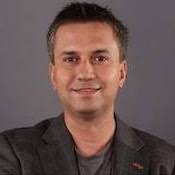
outgoing board member
Francesco has worked with Erlang since 1995, witnessing the transformation of the language into an ecosystem. He started his career as an intern at Ericsson’s computer science laboratory under Joe Armstrong, moving on to Ericsson’s Erlang training and consulting arm working on the R1 release of OTP, applying it to turnkey solutions and flagship telecom applications. In 1999, soon after Erlang was released as open source, he founded Erlang Solutions.
Francesco is the co-author of ‘Erlang Programming’ and ‘Designing for Scalability with Erlang/OTP’ both published by O’Reilly, a contributor to scientific papers and a senior lecturer at the University of Oxford. He has participated in the Future Learn Erlang MOOC, O’Reilly and University of Kent online Master Classes alongside being a regular speaker and tutor at conferences worldwide.
Why vote for him?
I live and breathe anything related to the Erlang ecosystem and the community around it. My passion for Erlang and Elixir translates into a clear vision and encouragement for others to accelerate a joint work not only around the Erlang Ecosystem Foundation, but also around people’s individual journeys embarking on functional programming. Working with Erlang for almost three decades, I have become resilient to all challenges when elevating the ecosystem to get the right traction, recognition and adoption we all know it deserves!
The EEF started with me and Erlang co-inventor Mike Williams, when through the IEUG, we brought together a group of people and companies with an aim to achieve the momentum needed to start a foundation. It has not been easy, but I am proud we’ve pulled it off! My contributions as a board member have been focused around my network, leading the Fellowship and Sponsorship work groups and helping other members acting as a facilitator and sounding board. Where needed, I have been using Erlang Solution’s conferences, events and other infrastructure and resources to help the foundation in whatever way possible, be it a speaker slot, marketing resources or paid time to members employed by us wanting to contribute.
But as others have pointed out, it is not just about me. The foundation would not be where it is thanks to the joint effort and enthusiasm of all the board members (and IEUG members before that) who are doing what they believe is the best for the future of Erlang, Elixir and the ecosystem as a whole. I wish you could vote not for a person, but for a team who has been working well together, leveraging each other’s strengths!
Fred Hebert
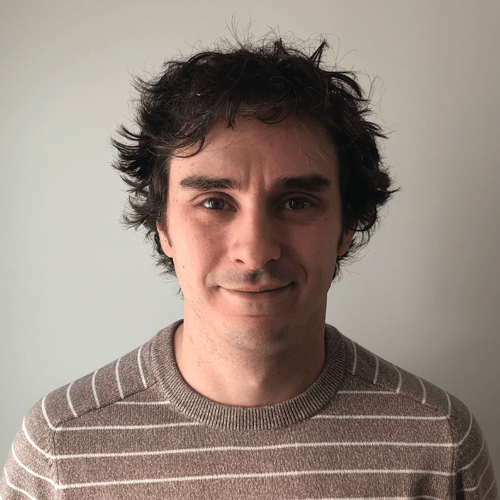
outgoing board member
Fred Hebert is a long-standing member of the Erlang and Elixir community. He is the author of books such as Learn You Some Erlang, Erlang in Anger, and Property-Based Testing with Erlang, Elixir, and PropEr. He also maintains open source libraries such as recon, and is currently one of the co-maintainers of the Rebar3 build tool. He has been working with Erlang (and more recently Elixir) for 10 years in, many industries, and is working in many working groups such as: Build and Packaging, Documentation, and Education, Training, & Adoption.
Why vote for him?
I first of all think you should vote for me after voting for either Alistair or Sebastian since they handle a lot of the tricky stuff in their current administrative roles that I enjoy not having to handle! Otherwise, I think I’ve done a decent job at worrying about the rest of boring stuff like the legalese of our bylaws and both tracking and pushing for the annoying functions of the foundation (such as volunteering to help run these elections or trying to track and comment working group proposals). I think I’ve also played a decent role at explaining the nitty gritty stuff to people who really want the TL:DR; of these things, without having to get into the messy details of all their content.
I hope and try to generally bring a unifying vision that conciliates the interests of the Erlang and Elixir parts of the community (without forgetting the other alternative languages we harbor). I hope to do all of this while keeping a pragmatic point of view of things, knowing that the end objectives of improving the community are what ultimately matters; I think I’ve demonstrated that–albeit behind closed doors–when helping push the IEUG to become the Erlang Ecosystem Foundation.
Gavin M. Roy
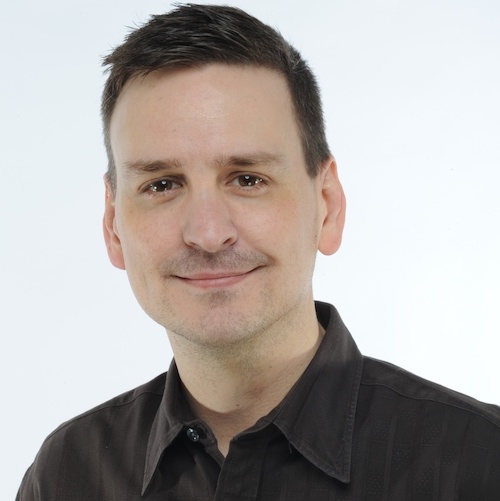
first time candidate
With over 25 years of experience in the Internet industry, Gavin has been responsible for the technical architecture and operational stability of several large-scale web properties. Gavin has been involved since the mid-90s as an advocate for Open Source software and communities. He maintains multiple open-source Erlang libraries and actively contributes to the RabbitMQ ecosystem. Gavin is the author of “RabbitMQ in Depth” (ISBN 1617291005) and is the Vice-President of Architecture at AWeber, an email marketing SAAS platform.
Why vote for him?
I’d like to help further the Erlang and Elixir community and I believe my experience will positively benefit the EEF. I’ve previously held a long-term board position for a non-profit IRC network and have actively worked with other software related foundations. With an extensive background in both open-source software and open-source community building, I believe I can positively collaborate with other board and community members to contribute back to the community that has helped me grow as an engineer.
Sebastian Strollo
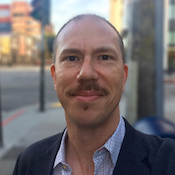
outgoing board member and secretary
Sebastian Strollo has been an Erlang programmer since 1991 when he was introduced to Erlang by the language authors at the Ericsson Computer Science Laboratory. Intrigued by the language and the lab he stayed on seeing Erlang through internal Ericsson use and then being part of making it open source in 1998.
He has since been part of several successful Erlang startups, most recently Tail-f Systems which was acquired by Cisco in 2014.
As a representative for Cisco in the Industrial Erlang User Group, Sebastian worked on transforming it into the Erlang Ecosystem Foundation, the membership based organization we have today.
Why vote for him?
Currently I am the acting secretary and treasurer of the foundation, as such I take care of making sure that we follow our bylaws, write minutes of board meetings, and keep records. As well as taking care of the bookkeeping of the foundation. I also participate in the sponsorship working group. I have chosen to volunteer this work because I believe that through the foundation we can come together as a community, attract new users, exchange ideas, and improve our shared infrastructure.
If I am re-elected I will: make the work we do as a board more transparent to our members, make sure we acquire 501(c)(3) (US non-profit) status, and continue to make sure our finances are in order.
I am really happy to see Elixir, Erlang, and all languages based on the beam come together as a single community through the foundation. And I hope you will let me serve on the board for another term.
Alistair Woodman
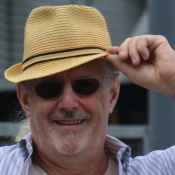
outgoing board member and president
Alistair has been working in the computing and networking space since 1987. He worked at Apple and Cisco and has spent the time since 2011 working with startups, open source projects and other ‘hobby projects’. Appreciation for Erlang developed via project work with Tail-F while at Cisco. This lead to deeper involved with the BEAM community after leaving Cisco and he has been happy to lend his time to increasing community cohesion and outreach. A student of natural philosophy, in his spare time he enjoys reading, traveling, meeting new people, sailing and diving.
Why vote for him?
I’m happy to help the community. I enjoy working with my board colleagues. I have connections to many open source projects and standards bodies and I have experience with not-for-profit as well as for-profit companies; their boards; and the process and bureaucracy associated with running such companies – basically, “I know how to wash the bottles and take the empties out.”